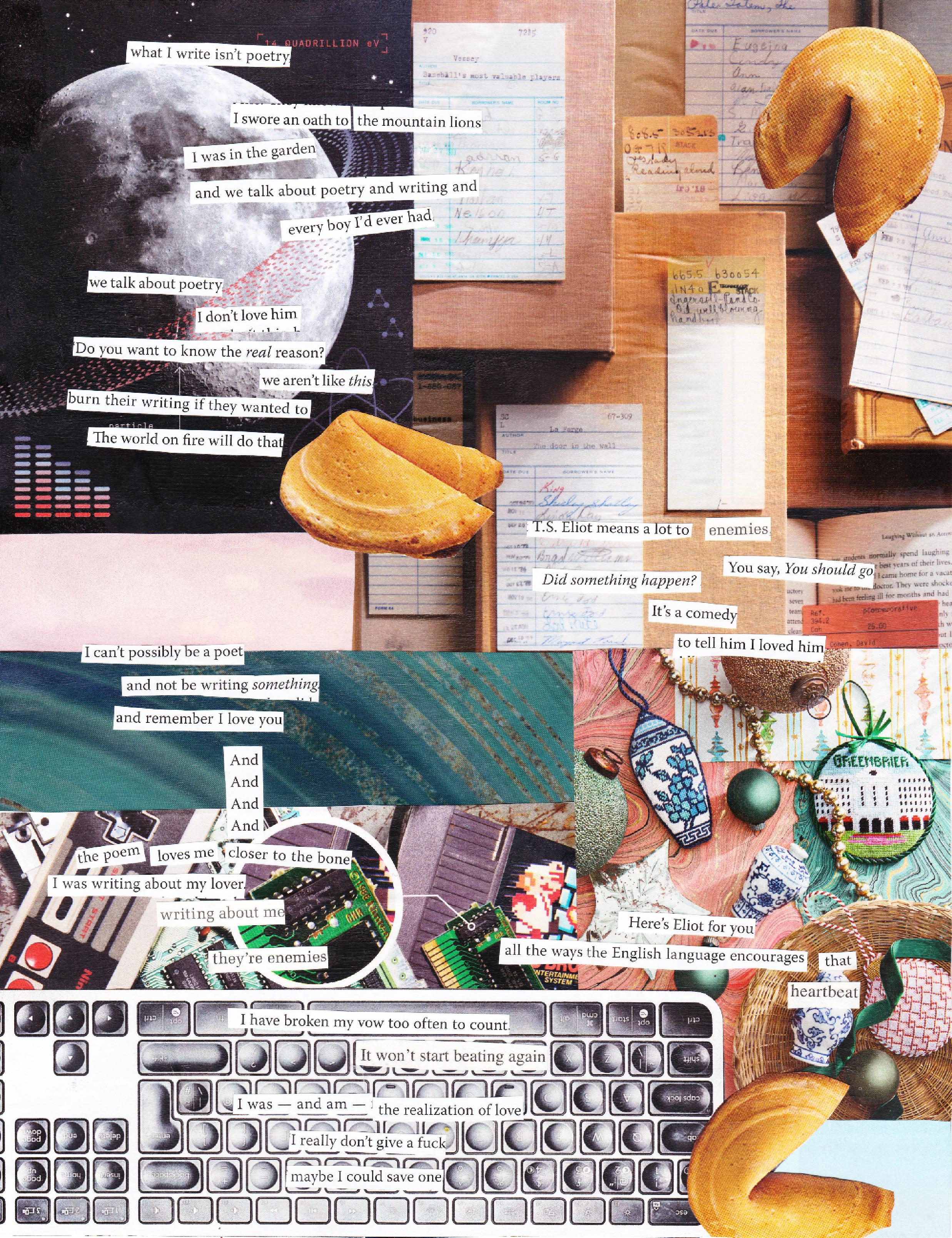
[what I write isn’t poetry]

Elliott Orchard-Blowen
3 Questions for Elliott
What was your process for creating this work?
To create these works, I started by finding and cutting out images which fit my initial concept for the piece. I then created a collage, and began assembling text fragments to create a found poem. I experimented with the placement of the fragments, until I was satisfied that the collage and poem worked together, rather than against each other. After gluing down the text, the pieces were finished.
What is the significance of the form/genre you chose for this work?
While collage is my usual medium, I feel that it was particularly fitting for these pieces, which deal with loss and interpersonal relationships. Collage and found poetry are composed of many elements from many places, all deliberately extracted and stitched back together. Each piece of these works was taken from somewhere else. These works are made of loss.
What is the significance of this work to you?
These works are deeply personal to me, as they are centered around my own lived experiences and relationships. "In The Kitchen" explores how food, and preparing food for someone else, is connected to loss, love, and trust. Food is used as a barrier to vulnerability, an indication of affection, and an act of sacrifice. "What I Write Isn't Poetry" is centered around how poetry is intertwined with my personal relationships. It serves as a pseudo-epilogue to a relationship, where I exchanged poetry with my then partner.
Elliott Orchard-Blowen (He/Him) is a queer multimedia artist, poet, and writer from New Hampshire, though his mind is somewhere beyond our atmosphere. His works span a wide variety of mediums and styles, including collage, found/cut-out poetry, black out poetry, flash fiction, traditional poetry, and unsent love letters. He has been published in With Confetti, Warning Lines Mag, NonBinary Review, Strukturriss, Lammergeier, and October Hill Magazine. He has work forthcoming in Mannequin Haus, Wrongdoing Magazine, Revolute, The Hunger, Variant Literature, Cerasus Magazine, and the Suicidaliens anthology by Gutslut Press. Some of his best pieces explore his experiences with mental illness and family, his life as a neurodivergent queer transman, and (like all good poets) unrequited love.